
Orthopedic Surgeon Paramus NJ
Orthopedic Surgeon Paramus NJ
For the third consecutive year, New York Sports Medicine Institute founder Neil S. Roth, MD has been recognized by New York Magazine as one of New York’s best Orthopedic Surgeon Paramus NJ. This prestigious list is determined by other doctors, and NYSMI takes pride in what is yet another acknowledgment of the high level of expertise that can be found at the New York Sports Medicine Institute.
New York Sports Medicine Institute – a comprehensive sports medicine practice providing orthopedic surgery, physical therapy, and concussion care – provides patients living or working in Westchester access to the region’s top sports medicine doctors and healthcare professionals in a single convenient White Plains location.
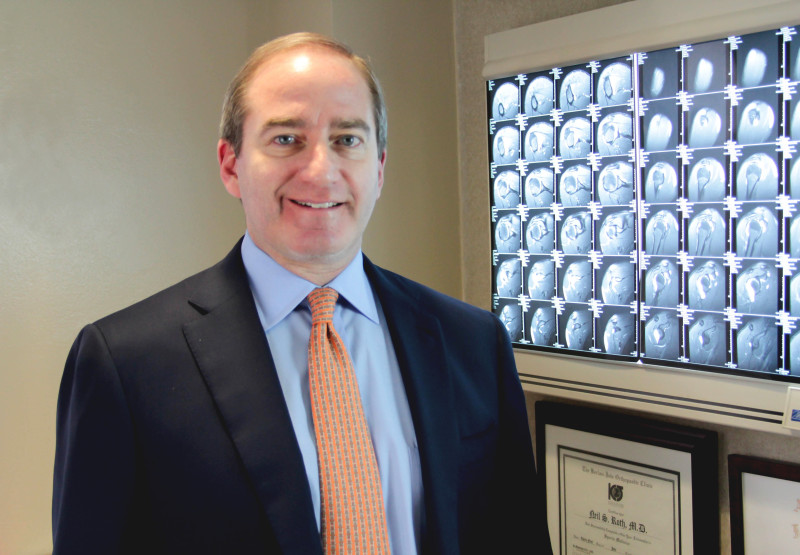
Dr. Roth is a board-certified orthopedic surgeon, specializing in sports medicine, shoulder, elbow and knee surgery. Dr. Roth completed his sports medicine fellowship training at the world-renowned Kerlan-Jobe Orthopedic Clinic in Los Angeles, and he served as an assistant team physician for the Los Angeles Lakers, Dodgers, Kings and Angels, the Anaheim Ducks and the University of Southern California. He has consulted on orthopedic issues with the New York Yankees and Oakland Athletics baseball clubs. Dr. Roth has been a member of the staff of the prestigious Lenox Hill orthopedic teaching hospital in New York City since 2003, and where he still practices. He is a highly skilled and experienced Orthopedic Surgeon Paramus NJ, Schedule your appointment today by filling out a form on our website.
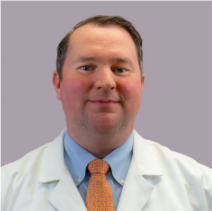
NICHOLAS DELANEY, MD – Local Orthopedic Surgeon Paramus NJ
Dr. Nicholas Delaney is a board-certified Orthopedic Surgeon concentrating on Sports Medicine and related injuries. A graduate of SUNY Upstate Medical School, Albany Medical Center for Residency and the prestigious Union Memorial Hospital Fellowship program in Baltimore Maryland, Dr. Delaney has built a reputation for providing excellent care to his patients in a compassionate, appropriate manner, putting the patient’s needs first.
Dr. Delaney’s current practice is focused on the treatment of athletic injuries, degenerative orthopedic conditions impacting mobility, and injuries sustained at the workplace (Worker’s Compensation) and Automobile accidents. He is completely focused on returning patients to normal movement using non-surgical, and when needed, surgical intervention. Dr. Delaney is licensed in New Jersey and New York and is board-certified with the ABOS.
Some examples of the kinds of injuries and conditions Dr. Delaney focuses on:
- Athletic injuries
- Muscle/Tendon tears
- Torn ligaments
- Torn meniscus
- Fractures
- Automotive Injuries
- Worker’s Compensation Injuries
Recent Blog Posts – From Our Orthopedic Surgeon in Paramus NJ
RECOVERING FROM HIP REPLACEMENT SURGERY
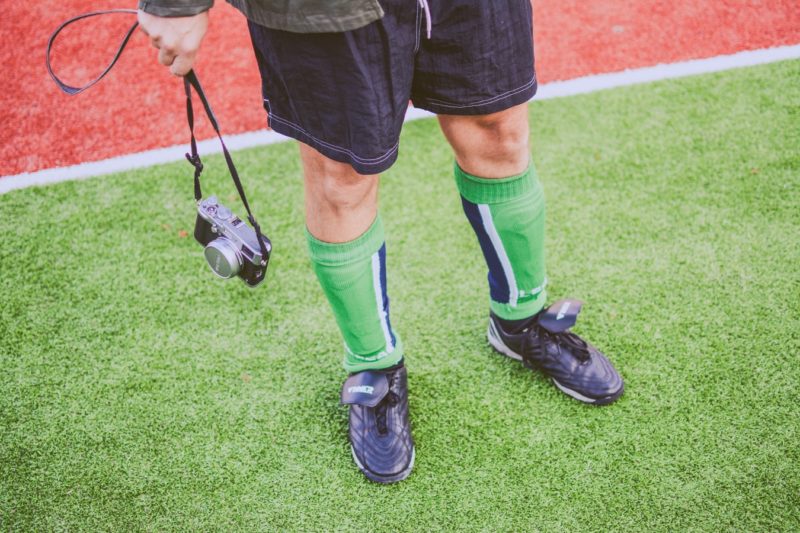
Hip replacement surgery is a procedure in which an orthopedist surgically removes a defective hip joint that has developed arthritis and replaces it with an artificial hip joint which is made of either metal or plastic. Hip replacement surgery is a last-resort option when all other non-invasive options such as physical therapy, pain management, and self-care have not worked. Once the hip joint has healed, patients report increased quality of life. At New York Sports Medicine Institute we are a team of orthopedists, physical therapists, a concussion specialist, and a Orthopedic Surgeon Paramus NJ and White Plains that can help you every step of the way of your hip replacement process.
Recovery after a hip operation:
Immediately after your hip replacement, you will be monitored by your team of doctors for several hours and either provided further treatment or released based on progress. You could feel some pain however we will provide you with medicine to reduce this. Anesthesia can cause breathing issues, which can cause mucus to accumulate in the lungs. Deep breathing and frequent coughing help to keep the lungs clean.
The typical post-hip replacement surgery hospitalization lasts one night, with some patients leaving the same day of surgery and others leaving days after.
Physical therapy & pain management:
Regular exercise to restore strength and flexibility in the hip joint is essential for a complete recovery. The goal is helping you return to your daily activities. This begins based on your overall bodily condition post-surgery. At New York Sports Medicine Institute, our team of orthopedists, physical therapists, and a Orthopedic Surgeon Paramus NJ will work to get you back to living your life pain-free.
Depending on your hip condition, a physiatrist may offer injections that can reduce pain and aid in overall healing. In conjunction with physical therapy, your Orthopedic Surgeon Paramus NJ can greatly help you during the post-surgical rehabilitation process.
Take care of your surgical wound:
You can typically remove the surgical bandage after five days. If you have sutures or pins, keep the area clean and dry until it is removed about two weeks after surgery. When bathing you must protect the area so that you do not get wet. Your surgical team will go over this process with you.
If there are signs of infection, contact your Orthopedic Surgeon Paramus NJ immediately. Signs of infection may include:
- Redness around the cut.
- Drainage issues at the incision.
- Flu-like symptoms.
How to reduce swelling and inflammation:
Circulation of the affected leg is slow after surgery, resulting in swelling of the calf and ankle. The swelling lasts on average 12 weeks but should decrease with each week. To reduce puffiness, we recommend resting your legs, knees above the heart, four to five times a day for 15 to 20 minutes each. Apply a cold compress to each painful or swollen area four to five times a day for at least 15-20 minutes.
Your physical therapist and physiatrist will help to reduce swelling and inflammation by prescribing the right treatment plan.
How to prevent blood clots:
Physical activity is the key to reducing the risk of a serious blood clot in your body. Walking, even over short distances, promotes circulation so as soon as you receive the go-ahead to begin walking, you should. Aim and bend your ankle repeatedly while sitting. Also, remember to take a prescription anticoagulant medication.
The symptoms of a blood clot include:
- Increase swelling of the affected leg, which does not decrease.
- Pain when touching the calf.
If you have any of these symptoms, contact our office immediately for further instructions!
Follow-Up Post Hip Replacement Surgery:
Up to one-year post-surgery, you will have regular follow-up visits with your orthopedic surgeon. Your physician may run tests including x-rays, perform a physical examination, and discuss your concerns and mobility and comfort progress. Because we are a multidisciplinary team of orthopedists, concussion specialists, physical therapists, and a Orthopedic Surgeon Paramus NJ, we can help you in all aspects of the hip replacement process.
Contact an Orthopedic Surgeon Paramus NJ
If you or someone you know has recently undergone hip replacement surgery, New York Sports Medicine Institute can help get them on track to recovery. Our team offers exceptional one-on-one treatment that can help give you the attention you deserve. For questions on how we can help, schedule an appointment today!
PROTECTING YOUR KNEES DURING SKIING AND SNOWBOARDING SEASON
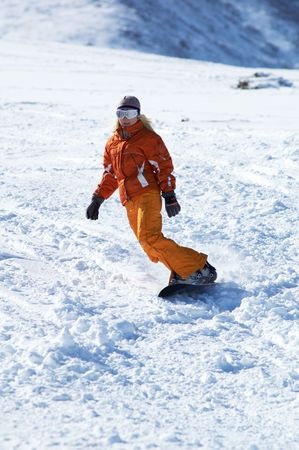
Skiing and snowboarding are just a few of the most enjoyable sports that the winter season has to offer, however, without the proper precautions, you can put yourself at serious risk. Your knees are incredibly vulnerable to injury when participating in these sports. Your sports Orthopedic Surgeon Paramus NJ at NYSMI would tell you that the most common knee injuries sustained as a result of these activities are ones to the ACL and MCL. However, you do not necessarily have to fall in order to damage your ACL. Seventy percent of all ACL injuries are non-contact and could potentially be avoided with the right precautionary steps.
How Can I Avoid Knee Injuries While Skiing or Snowboarding?
If you ski or snowboard safely, you are more likely to avoid any serious injury. Some factors to keep in mind while engaging in this activity:
- Skiing within your limits – It is important to always be in control when you are skiing or snowboarding and to not push yourself to do something that your body physically cannot. Like any other activity, it is imperative that you listen to your body. A sports Orthopedic Surgeon Paramus NJ would tell you that many patients have ignored the warning signs that their bodies gave them, leading to injury.
- Being aware of conditions – The weather can dramatically change the condition of the ski run and may be challenging for recreational skiers. Be aware of these conditions before you start skiing or snowboarding. We do not suggest skiing/snowboarding in inclement weather, especially if you’re not an expert.
- Falling correctly – Nobody is perfect and you are bound to fall eventually while hitting the slopes due to the nature of the sport. When you do inevitably take a dive, it is essential to go with the flow of the fall and “fall with grace.” The body is more likely to be injured when the body stiffens up, so keep yourself comfortable and try not to panic.
- Use the right gear – Make sure your equipment is properly fitted to you. DO NOT wear loose-fitting equipment.
- Training – Knee injuries are more common with recreational skiers because expert skiers normally have better technique. We at NYSMI, a sports Orthopedic Surgeon Paramus NJ, have seen plenty of cases where patients did not have the proper technique or their legs were not properly conditioned for skiing or snowboarding.
How Knee Injuries Occur, and How to Prevent Them
When skiing or snowboarding, you should always try to stay within your limits to decrease the risk of injury. However, even the most experienced athletes can find themselves in precarious situations. How you respond to and handle yourself in these situations can change whether you experience an injury or walk away safely. If you have suffered from a knee injury from skiing or snowboarding, reach out to us at NYSMI for a sports Orthopedic Surgeon Paramus NJ and get the help you need for recovery and care.
Often, the most common injuries in the knees from sports activities like skiing and snowboarding occur in the ACL and MCL. Injuries in these areas are more common because of the large amounts of twisting and bending forces that your knee can experience during these activities. The board or ski, combined with the stiff boots holding your legs in, can create a scenario that overloads the force in your knees and impels an injury. Some common errors or dangers that increase the risk of injury include:
- Being off-balance in the rear of your stance.
- Having your hips below the knee.
- Uphill arm back in an incorrect position.
- Upper body facing downhill ski or keeping your weight on the inside edge of the downhill ski.
If you find yourself in those situations, it is best to take the proper steps to fix your position, or even to bail out, as your risk of injury is far greater in those situations. Some ways to fix bad positioning include keeping your arms forward, feet together, and your hands over your skis. Additionally, you should maintain balance and control and keep your hips above your knees.
Local Orthopedic Surgeon in Paramus NJ
If you have injured your knee while skiing, snowboarding, or during any sport, visit a sports Orthopedic Surgeon Paramus NJ as soon as you can to avoid any further damage. If you are experiencing any pain, swelling, heat, redness, tenderness, hear any clicking or popping sounds, or if you have difficulty bending or putting weight on your knee, we encourage our patients to come to the New York Sports Medicine Institute. Our sports Orthopedic Surgeon Paramus NJ understands that every injury is different and we will be able to provide you with the proper care and rehab to get you back on the slopes as soon as possible. For more information, check out our website, or contact our NYC location at 212.861.2300.
THE IMPORTANCE OF PROPER REHABILITATION AFTER SURGERY
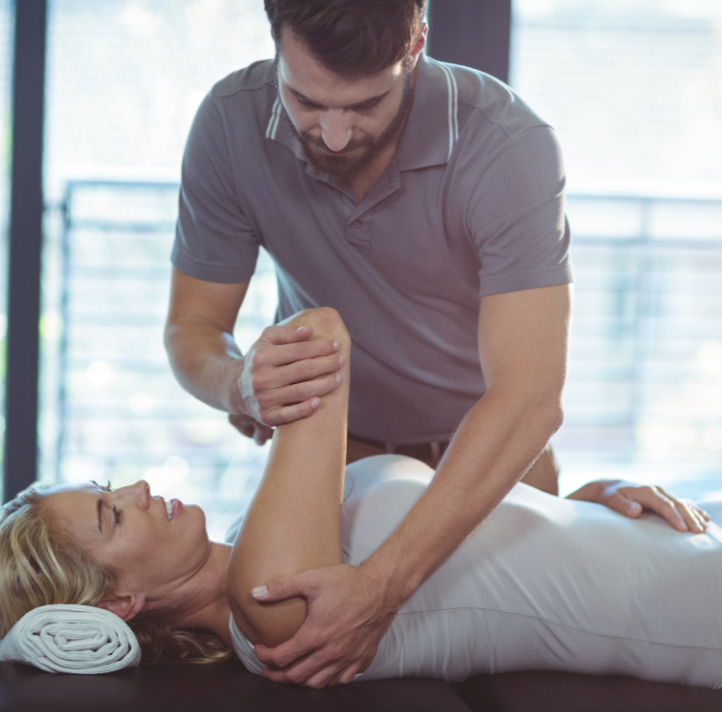
After surgery for your sports injury, our Orthopedic Surgeon Paramus NJ, Dr. Neil Roth is likely to prescribe physical therapy for you. If you do not then you are running serious risks to your body and may even make your injuries worse. Injuries resulting from lack of proper physical therapy rehab is most common after you receive surgery on the shoulder, knee, hip, elbow, foot, ankle, hand, or wrist.
These joints you get surgery on will need rehabilitation to get back in working order, and without it, you run the risk of loss of mobility and use, as well as reinjury. For an orthopedic surgeon in NYC that can help treat your injuries and provide you with the proper rehabilitation after your surgery, reach out to us at the New York Sports Medicine Institute and get the help you need!
Benefits of Proper Rehabilitation After Surgery
Our expert Orthopedic Surgeon Paramus NJ is likely to tell you that if you begin your rehab after your surgery you will:
- Restore normal movement in your injured area
- Build up strength in the surgically repaired area and surrounding muscles
- Ease any pain or swelling
- Let you go back to normal activities
- Help with circulation so you can avoid blood clots
- Help avoid re-injury
Post-rehab, or post-surgery rehabilitation, is about creating a balance of rest and exertion so you can build strength in the area you need to rebuild, while also allowing your body to heal. It can be easy to stay inactive, but this increases your risk of experiencing atrophy. At the same time, you may overexert yourself if you try to do too much after your surgery and end up hindering your healing and rehabilitation process. Your physical therapist and your orthopedic surgeon should work together to build the correct rehabilitation plan that will get you back on your feet, and let you continue your healthy life. To speak with an Orthopedic Surgeon Paramus NJ who can work with physical therapists to help build the perfect rehab plan for you, contact us at NYSMI and get back on your feet!
What Rehab or Therapy Do I Need?
It is important to start the rehabilitation process as soon as you can after surgery. Sometimes, depending on your surgery and if you are not in too much pain, you could start rehab the day of your operation. Rehab would include:
- Lightweight training exercises to strengthen the body – This will help restore normal function to the body and improve the muscles surrounding the surgically repaired area.
- Stretching the muscles and joints – Stretching will help restore your range of motion and flexibility of the muscles.
- Ice and heat application – This is important for warming and cooling the muscles. It can stimulate blood flow and decrease any swelling. If you are not sure when to apply ice or heat, consult your Orthopedic Surgeon Paramus NJ or physical therapist.
In addition to different parts of rehab, there are different types of therapies your orthopedic surgeon may prescribe to you. The different types of therapies include:
- Physical therapy- This would focus on building strength and range of motion in injured areas or joints that have been operated on. This type of therapy is the most common and often given first after surgery.
- Occupational therapy- this type of therapy focuses on performing certain tasks after your surgeries, such as walking up stairs or being able to do your own housework. You can also learn how to better modify your environment or activities to make them easier to perform and get back to living a normal life.
- Speech therapy- this therapy is more common when you have surgery on the head or neck. You may develop issues with talking, swallowing, or being able to communicate, and speech therapy focuses on what you can do to resolve and fix these issues.
There are many different types of rehabilitation processes you can use to get back to living a normal and healthy life. You should speak with your surgeon and physical therapist to learn what types of therapies you need and are right for you. To speak with an Orthopedic Surgeon Paramus NJ and figure out the best rehabilitation plan for you, reach out to us at NYSMI.
How Can an Orthopedic Surgeon Paramus NJ Help?
If you have recently received surgery, then it is important to strengthen your body to avoid any post-surgery complications. If you have had a surgery but never went through a rehab process, speak with your orthopedic surgeon about rehabilitation plans that would be right for you. At the New York Sports Medicine Institute, we understand that everyone’s surgery is different and everyone will rehab differently. Our Orthopedic Surgeon Paramus NJ is able to recommend what routine would be right for you and put you on the right path to feeling healthier than ever, and get you back to your favorite activities. For more information visit us online or call our NYC office at 212.861.2300.
TREATMENT METHODS FOR PATELLAR TENDONITIS
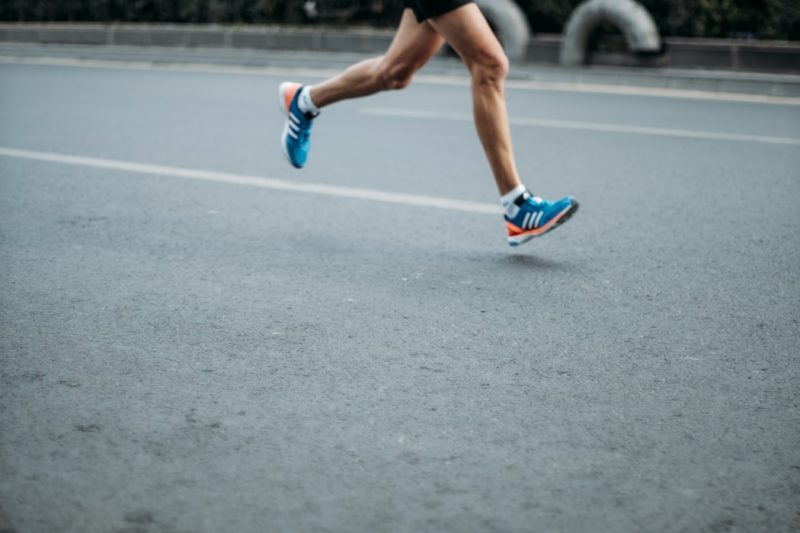
How Can Our Orthopedic Surgeon Paramus NJ Help You?
At New York Sports Medicine Institute, our team knows how devastating knee pain and injuries can be to an athlete. If you’ve recently been diagnosed with patellar tendonitis, you’ll need to work with a top team that can help with your rehabilitation and get you back to full strength. Dr. Roth, our Orthopedic Surgeon Paramus NJ, will be able to do just that. For more information on what can go into your treatment, and what can point to you having sustained this injury, continue reading.
What Is Patellar Tendonitis?
Your patellar tendon works to connect the muscles in the front of your thigh to your kneecap. These parts of the body work together to allow for movements such as kicking, running or jumping. When overuse of your knee causes your patellar tendon to become irritated and inflamed, it is known as patellar tendonitis. Many different actions can lead to irritation in this tendon taking place, but the sports that are most likely to cause this include:
- Basketball
- Volleyball
- Track and field events that involve jumping
Symptoms To Watch For
Patellar tendonitis, also known as “jumper’s knee,” needs to be taken care of right away to prevent serious damage to your knee. When care is not received quickly, surgery could be the only option to treat the issue at hand. That is why when we begin to experience any of the following symptoms, you should reach out to our Orthopedic Surgeon Paramus NJ, right away:
- Pain and inflammation around your knee
- Redness or swelling
- Feelings of discomfort that begins with physical activity or right after an intense workout
- Inability to compete due to knee pain
Risk Factors
Knowing the risk factors that can lead to patellar tendonitis can help you try to avoid this type of injury in the future. Not needing to visit with our Orthopedic Surgeon Paramus NJ, means you won’t need to stop competing. Below are just some of the risk factors our team wants you to be aware of:
- Muscular imbalances
- Tightened leg muscles
- Sudden increases in the amount of stress placed on your knees
Invasive Forms Of Treatment
After being diagnosed with patellar tendonitis, there are multiple treatment options our Orthopedic Surgeon Paramus NJ, may recommend. When the damage to your patellar tendon is severe enough, invasive intervention is sometimes the only option. Should this happen to you, below are few procedures and treatments that may be performed:
- Platelet-rich plasma injections: Dr. Roth will perform this injection for patients plagued with chronic patellar tendon problems. These injections can promote new tissue to form and help repair damage.
- Oscillating needle procedure: This outpatient procedure is a relatively new one. With the use of local anesthesia and ultrasound imaging, a small, oscillating needle will cut away the damage in your knee while sparing the tendon.
- Other Surgery: The previous procedure is not the only one that can be performed. If the damage is severe enough, Dr. Roth may recommend a surgical debridement of the patellar tendon. Doing so can eliminate your pain and get you back to full strength.
Non-Invasive Treatment
While invasive treatments can be effective, they always carry the risk of complications. To avoid this from happening, our team may utilize non-invasive forms of treatment at first to see if they will be effective. Examples of these forms of treatment include:
- Physical therapy: Physical therapy is an activity-based form of treatment that focuses on promoting healing from within the affected area. Through the use of therapeutic stretches and strengthening exercises, the irritation being experienced in your patellar tendon can be relieved.
- Knee braces: If instability has caused patellar tendonitis to take place, wearing a knee brace could correct the issue. These braces can offer the support you need and take the pressure of the patellar tendon.
- Rest and medication: Sometimes, all you’ll need is a few days worth of rest to correct your patellar tendonitis. To manage your pain during your resting period, you may be prescribed painkillers or anti-inflammatories.
Contact Our Orthopedic Surgeon Paramus NJ
Trying to live with knee pain can quickly prove to be a detriment to your everyday life. At New York Sports Medicine Institute, our team is committed to helping our patients find the relief they need. For more information on patellar tendonitis, and the treatment methods from our Orthopedic Surgeon Paramus NJ, contact us today.
HOW TO DEAL WITH YOUR FLEXOR TENDONITIS

Are you in need of an orthopedic surgeon Paramus NJ to treat your flexor tendonitis? Our team at NYSMI can help. Contact our office today and continue reading.
A tendon is tissue that acts as a bridge between muscles and bones. One of the more important tendons in your body are the flexor tendons. Your flexor tendons are located on the inside of your hand and when you bend your fingers. An orthopedic surgeon Paramus NJ is here to help you. New York Sports Medicine Institute provides a wide range of highly specialized treatments to properly evaluate and treat their patients.
Types of Tendonitis
Everyone’s body contains many types of tendons, thus there are many different types of tendonitis. Tendonitis can happen in every tendon in your body if it is overworked. Tendons can be overworked through strenuous exercise or just use over time. However, these are the most common cases:
- Golfer’s elbow
- Tennis elbow
- Achilles tendonitis
- Jumper’s knee
- Swimmer’s shoulder
- Tendonitis of the wrist and/or hand
Causes
Flexor tendonitis can occur when there is too much strain in your wrists or hands. It may make it both painful and difficult to bend your fingers or move your hands in certain ways. This tends to happen from repetition of a particular movement, or physical activity and sports.
Prevention
There are several ways that can help prevent the formation of tendonitis. To reduce the risk of developing tendonitis, an orthopedic surgeon recommends the following:
- Ease up. Avoid activities that cause strain
- Rest. Do not do the same activity for prolonged periods
- Mix it up. Change the activity if it requires repetitive motions
- Improve your technique. Get instructions when beginning a new activity to ensure you are performing it properly
- Stretch. It is good to stretch afterwards to maximize the range of your joints
- Strengthen your muscles. Prepare them to withstand any stress
What to Expect When Being Diagnosed
Tendonitis is typically diagnosed with a physical examination as well as asking various questions about your medical history. From there, they may take an x-ray, MRI, or ultrasound to evaluate the level the tendon is affected.
Symptoms
A few common signs of flexor tendonitis are the following:
- Inability to bend any or all fingers
- Numbness in the fingertip
- Tenderness in your palm
- Mild swelling of the hand and/or fingers
Treatments
If you have any of those symptoms and believe you may have flexor tendonitis, here are some ways you can treat it according to New York Sports Medicine Institute. If you are unsure of which treatment is best for you, make sure to contact an orthopedic surgeon Paramus NJ to set up an appointment to determine the best course of action.
- Physical Therapy
- Specific exercises that stretch and strengthen the tendon
- Specific exercises that stretch and strengthen the tendon
- Home Remedies
- Rest
- Avoid strenuous activities
- Ice
- To decrease swelling and pain, ice for 20 minutes
- Compression
- Use tight wraps or braces to compress to area and swelling
- Use tight wraps or braces to compress to area and swelling
- Rest
- Medications
- Pain relievers
- Aleve, Advil, Motrin, and others
- Corticosteroids
- Cortisone reduces inflammation which can ease pain
- Platelet-rich Plasma (PRP)
- Takes a sample of blood, spins it, and is injected into the area to induce healing
- Pain relievers
- Surgical Procedures
- Dry needling
- This procedure makes small holes in the tendons to stimulate healing
- Ultrasonic treatment
- This procedure uses a small incision to use a small device that removes scar tissue
- Surgery
- If the tendon has torn, surgical repair may be needed
- Dry needling
Contact Our Orthopedic Surgeon Paramus NJ
If you are looking for an orthopedic surgeon Paramus NJ, New York Sports Medicine Institute is the place for you. We take pride in providing the highest quality care for our patients and ensuring that they are satisfied when they exit our doors. It is our goal to allow our patients to live pain-free lives and be rid of injuries. We care so much for our patients and hope that we can help treat you too. To learn more, please contact us today and visit our website.
HOW TO RELIEVE ARTHRITIC KNEE PAIN
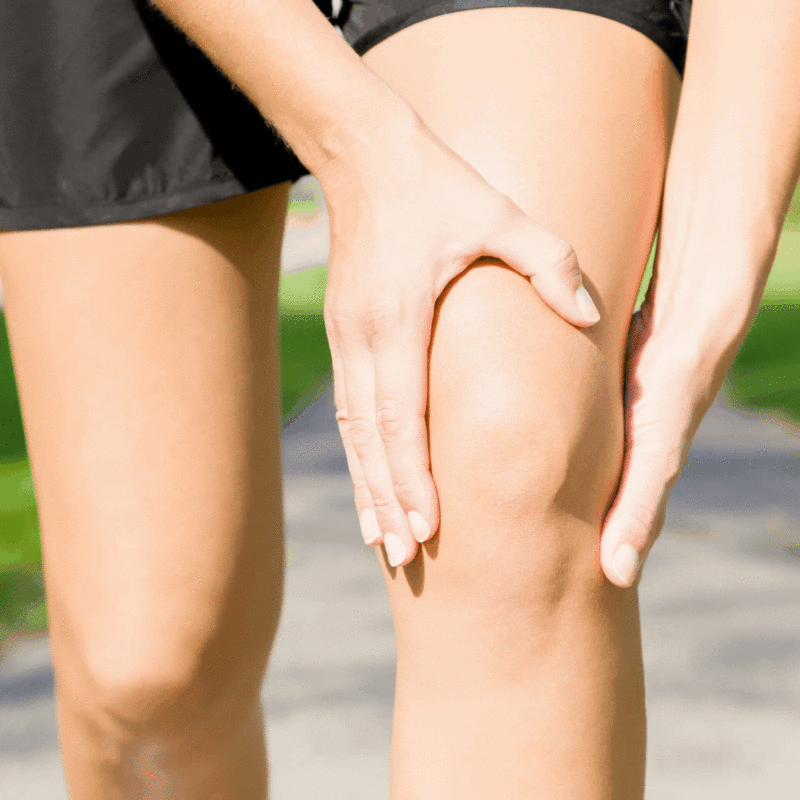
Having arthritic knee pain can make everyday activities, such as walking or climbing up the stairs very difficult. Unfortunately, there is no cure for arthritis; however, there are many ways to relieve your arthritic knee pain. The longer you wait to address your knee pain and allow the pain to worsen, the higher the chance of having to visit an Orthopedic Surgeon Paramus NJ.
What is Arthritis?
Arthritis is the inflammation of one or more joints that causes pain, swelling, and stiffness. While arthritis can affect any joint in the body, it is most common in the knee. The most common types of arthritis are osteoarthritis and rheumatoid arthritis. Osteoarthritis is a degenerative type of arthritis caused by “wear and tear.” This is the most common type of arthritis in the knee and is typically seen in people ages 50 and older. With this condition, the cartilage in the knee joint begins to wear away, becoming frayed and rough.
Over time, the pain will worsen. Rheumatoid arthritis is a chronic disease that attacks the knee joint as well as other joints throughout the body. With this condition, the synovial membrane that covers the knee joint swells, causing pain and stiffness. It is also considered an autoimmune disease where the immune system attacks its own tissue, which is cartilage and ligaments. This, in turn, softens the bone.
Symptoms
Arthritis in the knee is painful and tends to develop gradually over time. There are other symptoms besides pain which include:
- The knee becomes stiff and swollen, which makes it difficult to bend and straighten.
- After sitting, resting, or just after waking up in the morning, the pain and swelling main be worse.
- Vigorous activity causes pain to flare up.
- During movement of the knee, your knee way lock or stick, which causes a creaking, clicking, or snapping noise.
- You may notice buckling or weakness in the knee.
- Increase in joint pain with the change of weather.
Treatment
Unfortunately, there is no cure for arthritis; there are different forms of treatment that can help to relieve the pain, both nonsurgical and surgical.
For nonsurgical treatment, your doctor might recommend the following treatment options:
- Lifestyle Modifications: By making small changes to your everyday life, you can prevent and slow the progression of your arthritis. Such changes include minimizing activity that causes pain, avoiding high-impact activities, and losing weight to reduce stress on the joint.
- Physical Therapy: Having a physical therapist walk you through exercises to increase your flexibility and range of motion and strengthen your leg muscles is another way to relieve the pain.
- Medications: Many different drugs are useful in treating arthritic knee pain. Your doctor will help to determine the correct medication and dosage specific for you.
Your Orthopedic Surgeon Paramus NJ might recommend surgical treatment if your pain is not relieved with nonsurgical treatment. Some of the different types of procedures include:
- Arthroscopy: This procedure is done if osteoarthritis has caused degenerative meniscus tears. Your Orthopedic Surgeon Paramus NJ will make a small incision in the knee and insert instruments to diagnose and treat joint problems.
- Osteotomy: This is when the Orthopedic Surgeon Paramus NJ reshapes either the shinbone or the thigh bone to relieve pressure on the knee joint. After this procedure, you will not feel as much pain, and you will improve the function of your knee.
- Total or Partial Knee Replacement: The damaged cartilage and bone will be removed, and use a new metal or plastic joint to restore the function of your knee.
Recovery
There will always be a period of recovery after seeing an Orthopedic Surgeon Paramus NJ repair your knee. Typically, the recovery and rehabilitation process involves physical therapy to regain strength and restore range of motion. Additionally, you may need to use crutches and wear a knee brace. Overall, once you have fully recovered, you will no longer feel the pain from the past, and you will be able to perform everyday tasks pain-free.
Contact Our Orthopedic Surgeon Paramus NJ
If you are suffering from arthritic knee pain, contact our team at New York Sports Medicine Institute. We have many Orthopedic Surgeon Paramus NJ that provides highly specialized treatment. Schedule an appointment with us if you want to get rid of your arthritic knee pain!
RISK FACTORS OF KNEE INJURY
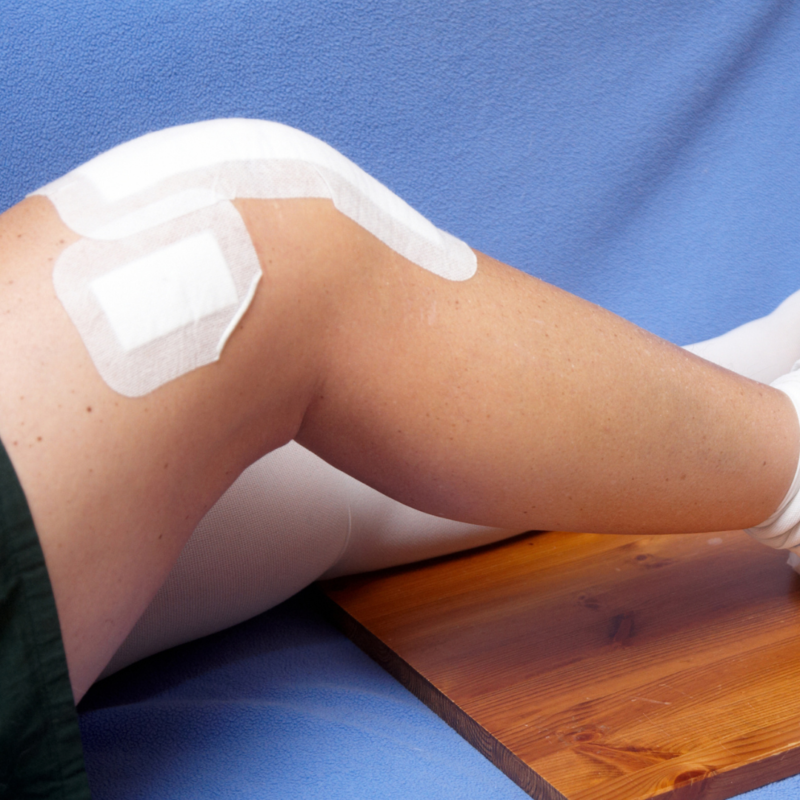
The knee is one of the essential joints in the human body. Many everyday activities rely on the movements at the knee joints, including walking, running, and standing. Since your knee has so many functions that support your daily activities, it is a high-risk area. The common reasons for knee pain are related to injury and repeated stress on the knee. Knee injuries would have symptoms including swelling, redness, tenderness, etc. If this sounds like your situation and you are looking for an Orthopedic Surgeon Paramus NJ, then the New York Sports Medicine Institute is where you can look for doctoral advice.
Who is NYSMI?
The New York Sports Medicine Institute, Orthopedic Surgeon Paramus NJ, is a full service sports medicine practice with authoritative specialties in Orthopedic Surgery, Physical Therapy, and Concussion Care. NYSMI has always aimed to provide the highest quality of orthopedic and sports medicine services. In addition to treating immediate and chronic problems, NYSMI also tries to integrate the doctrine of prevention in all its treatment plans.
NYSMI serves patients three years old and up, with treatment and surgery for orthopedic and sports injuries to help with the pain occurring at shoulder, knee, hip, and other pains, from the mild to the severe. NYSMI’s experienced and licensed physical therapists help you improve your mobility and quality of life. Physical therapy can also be an alternative to surgery and pain medication. The NYSMI team has extensive training in diagnosing and treating conditions that limit the body’s ability to move and function in daily life, helping you get back in the game.
What Causes Knee Injuries?
Being active is one of the best things for you to keep your overall health. But getting injuries from being active is common, and they often involve the knees. Common causes of knee injuries include twisting mechanisms caused by falls, sports, or accidents. High-force injuries such as those caused by sports-related injuries and motor vehicle accidents can damage multiple parts of the knee anatomy, causing multiple types of knee injuries.
Risk Factors of Knee Injury
Overuse, improper training, osteoporosis, and participating in high-impact sports with sudden changes in direction are all risk factors for a knee injury. Knee pain and swelling are the most common signs and symptoms. Here are some risk factors of knee injury:
- High-impact sports: Running, basketball, football, hockey, soccer, cycling, and etc., could increase the risk of knee pain and injury.
- Exercise: Exercises such as high-impact cardiovascular activity or yoga could also cause knee injuries.
- Overweight: Overweight is a risk factor for knee injuries because it puts more pressure on the lower extremity joints.
- Lack of muscle flexibility or strength: The lack of muscle flexibility could increase the risk of getting knee injury since your muscles help stabilize and protect your joints and let you move freely.
- Overuse / Overtraining: Knee injuries can also be caused by improper or insufficient training for a sport or by improperly rehabilitating acute injuries.
Prevention Tips for Knee Injury
Even though you could not prevent all injuries, you could take some steps to make them less likely. Here are some tips for you to help prevent knee injuries:
- Stretch your muscles and joints after gently moving through the motions of your sport or activity.
- Make sure you wear appropriate footwear.
- Do not make sudden, jarring movements.
- When changing directions, turn on the balls of your feet instead of twisting your knees.
- Slowly increase your exercise program over time.
- If you kneel a lot, you should wear knee pads to prevent bursitis.
- Perform light, easy, and sustained stretches after exercising.
Make an appointment with your doctor if your knee pain worsens to the point that it interferes with your everyday activities or sleep. NYSMI, Orthopedic Surgeon Paramus NJ, is committed to ensuring that you are able to do what you enjoy doing every day. The orthopedic surgeons of the New York Sports Medicine Institute are skilled at diagnosing knee injuries and developing an optimal treatment plan. Physical therapy and onsite X-rays are available for patients. We want to make sure that your life is as fulfilling as it was before your injury and that you may improve your athletic ability as a whole.
RECOVERY FOR FOOT SPRAIN
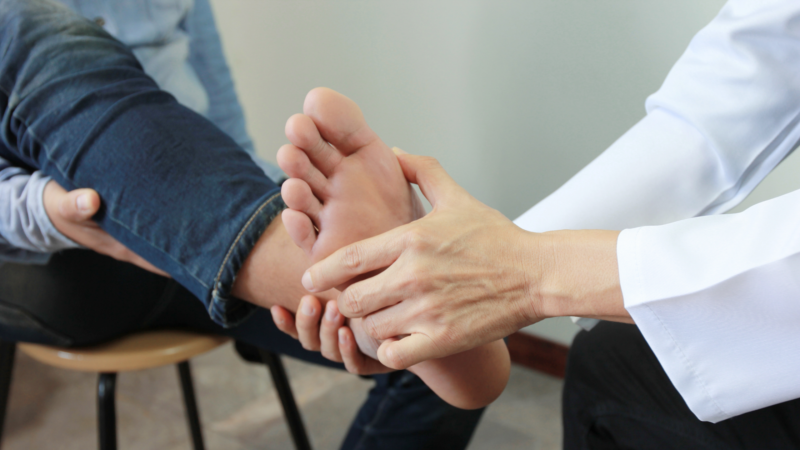
Your foot carries all the weight of your entire body with every step that you take, making your feet susceptible to more injuries and sprains. Since your foot has so many bones and joints that help make it up, that makes it a high-risk area. However, sprains of the foot are pretty rare, except in for those who participate in certain sports or occupations that subject the feet to abnormal twisting motions or bends. Foot sprains range in severity from Grade 1 to Grade 3; 1 being the least amount of pain and 3 being severe. If this sounds like something that has happened to you and you are looking for an orthopedic surgeon near 10021, then the New York Sports Medicine Institute is where you can look for doctoral advice.
Who is NYSMI?
The New York Sports Medicine Institute, orthopedic surgeon near 10021, is a full service sports medicine practice with specialties in Orthopedic Surgery, Physical Therapy and Concussion Care. The practice has locations in Manhattan and White Plains, New York. New York Sports Medicine Institute is committed to providing the highest quality of orthopedic and sports medical care. Along with the treatment of chronic pain, NYSMI strives to integrate the doctrine of prevention in all treatment plans as a way to alleviate future difficulties.
NYSMI serves patients from 3 years old to 100 years old, with treatment and surgery for orthopedic and sports injuries, to alleviate pain in the shoulder, knee, hip, and other pains, from the mild to the severe. NYSMI’s experienced and licensed physical therapists can help you to improve your mobility and your quality of life. The NYSMI team has extensive training in diagnosing and treating many conditions that limit the body’s ability to move and function in daily life, helping you get back in your regular life routine.
What is a Foot Sprain?
A foot sprain happens when you either stretch or tear the ligaments around your foot, which are the tough tissues around your foot that connect the bone to another bone. Sprains can happen during any activity, like running, falling or even hitting one of your toes against something. A sprain will often happen though when you jump or change directions too quickly. Sports that might cause this type of injury are basketball, baseball, volleyball, soccer, lacrosse, hockey and similar sports. Mostly all foot sprains will get better with treatment and over time as long as you take the necessary precautions to heal.
Treatment for Foot Sprain
There are many options for treating a foot sprain but the main thing that you really want to do is to rest. Keep off of your foot as often as you can in order to let the ligaments heal properly. Another option is to use ice as much as possible, this will help reduce swelling, inflammation, and any kind of pain that is occurring to the affected area. Another option for treatment is to use any type of compression, this will also help in the reduction of swelling and the pain that you may be experiencing. If those options are not working out for you, then it is time to seek medical attention for the area.
If it is difficult to put weight on your foot, if there is any obvious deformity of the foot or pain directly over the bone, or if you are just completely unsure of the severity of the condition. Physical therapy, chiropractor or acupuncture are also other great options for treatment in the affected areas. NYSMI will offer you all of these treatment options with ease and accessibility to make your treatment and recovery as easy as possible. They will offer you the information you need so that you will be educated in your journey back to your normal life routine.
If you are in need of care because of a serious injury or even mild sprain, then you should seek medical attention so you will have no further health issues down the road. NYSMI, orthopedic surgeon near 10021, wants to make sure that you are able to continue your everyday activities and get back to the things that you love. They want to make sure that your life is as fulfilled as it was before your injury and that you may improve on your athletic ability as a whole.


